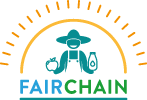
Apr 2, 2024

As we journey through the FAIRCHAIN project, we’re excited to share our latest achievements within the Swedish Case Study in nurturing sustainable and community-focused berry value chains, locally placed in Bjurholm in Sweden.
Our engagement in Bjurholm has led to the creation of “Bär-i-bygden,” a community-centric model set to create an alternative to the international berry industry by fostering local pride and prosperity. This organization encourages passionate local ambassadors, with tailor-made solutions that resonate within our community. Through co-creation and dynamic workshops, we’ve brought together a diverse spectrum of stakeholders, from tech to policymakers, fostering a collaborative environment that triggers innovation across the entire berry value chain.
We’re also proud to report progress in reducing transportation-related carbon emissions through smarter berry picking and distribution strategies, promising significant environmental benefits. And our ICT tool development is yielding promising results, poised to streamline berry picking processes and reduce resource strain. With initial models ready for field testing, we’re on the edge of transformative change.
Keep an eye out for more updates as we journey towards a more sustainable and prosperous berry industry right here in Sweden!
Past and upcoming events
• B2B event in February-March: We had an exciting B2B event where local berries took center stage in Umeå and Bjurholm stores. We evaluated the market potential of local picked berries and deepened relations with local businesses.
• Final co-creation event: Thursday, March 21st, we had our final co-creation event, showcasing our progress, business concept and ICT tool.
• Demo event: Friday, August 23rd, we will showcase our innovative business concept and ICT tool. Your insights will be invaluable as we continue to refine and innovate.
• Berry festival: August 24th, we come together to celebrate our local berry herritage at a delightful festival. Stay tuned for more details!
• Scaling up berry picking: We’re actively exploring ways to scale up berry picking to meet growing demand, aiming for production levels of 2-5 tons.
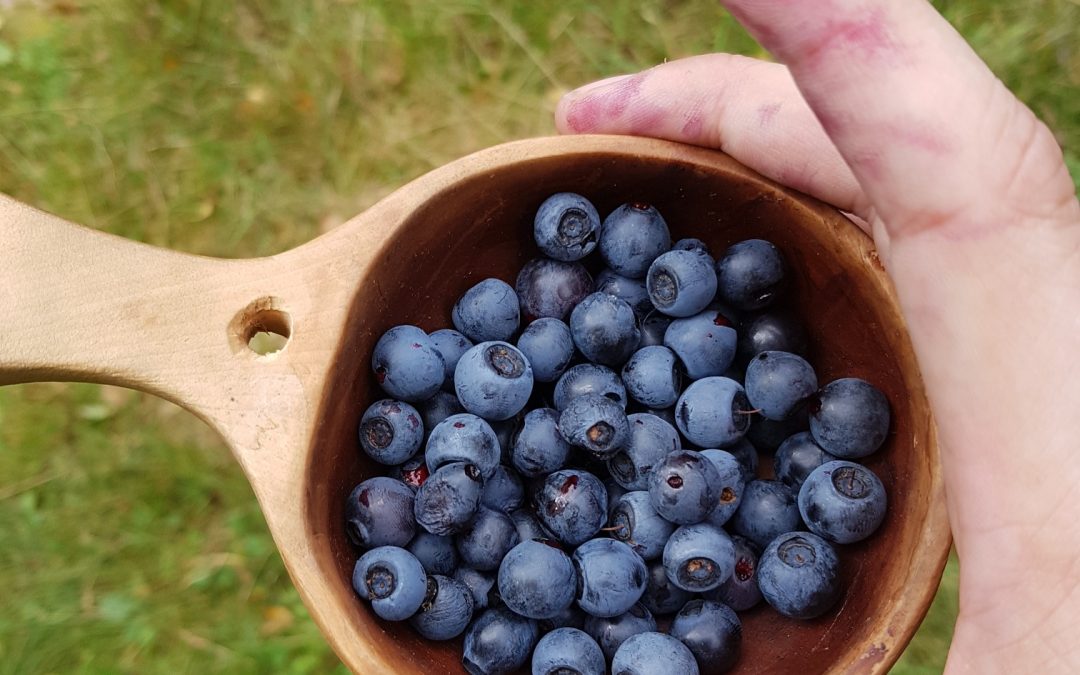
Sep 18, 2023
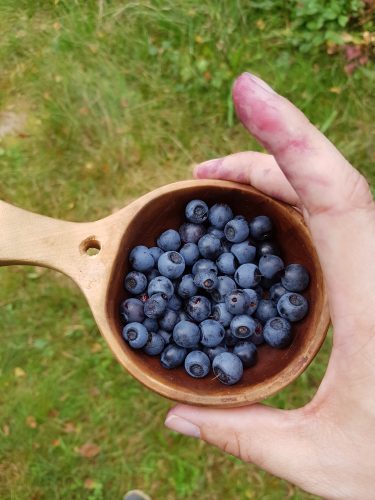
FAIRCHAIN was well represented at the Nordic Wildberry Conference, held in Umeå, Sweeden from 7 to 8 September, with four poster presentations summarising results of the project’s Swedish Case Study, which seeks to develop digital applications and business models to expand the local berry industry.
- Assessing sustainability of innovative solutions for forest berry picking in Sweden – Mehran Rad, Pegah Amani, Karin Östergren
- Bärräkna – A Web Application for Berry Pickers – Fredrik Nilbrink, Rebecca Lindmark, Victor Marklund, Alexander Wahlberg, Inka Bohlin, Karin Östergren
- Berries of the region – a System Demonstrator for Intermediate Value Chains – Alexander Wahlberg – Karin Östergren, Anna-Karin Karlsson, Pegah Amani, Fredrik Nilbrink, Rebecca Lindmark, Inka Bohlin , Gun Lidestav, Claudia Wieczorek, and Roger Uddstål
- Mapping potential location for bilberry picking with remote sensing, local field data and phone-application – I. Bohlina, A. Wahlbergb, R. Uddstålb, F. Nilbrinkb, E. Bergströma, P. Axensten, M. Ekströma, A-K. Karlsson, and K. Östergren

May 19, 2023
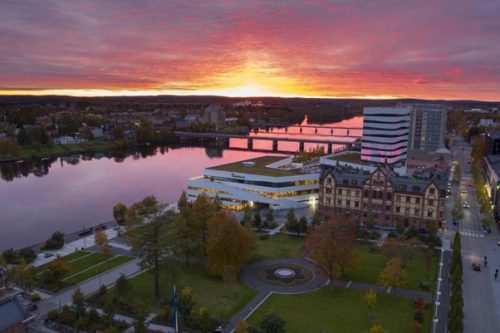
Photo credit: Fredrik Larsson / Visit Umeå Content Bank
The FAIRCHAIN Food Hack will bring together students and instructors for an intensive 3-day session in which ideas for innovation all along the intermediate food supply chain are presented and refined. The focus will be on the local berry industry of Northern Sweden.
Local students will mix with international prize winners in six teams of three to work out a solution to a specific problem presented by local berry stakeholders. The local students, chosen by their faculty, will work with winners of the 2022 and 2023 editions of the FoodFactory4Us International Student Competition Game.
A local jury of berry experts will evaluate student presentations and their will be winners in several classes: most creative, most motivated, most likely for business success.
Draft agenda and more information coming soon.
Event organized by RISE and IFA.
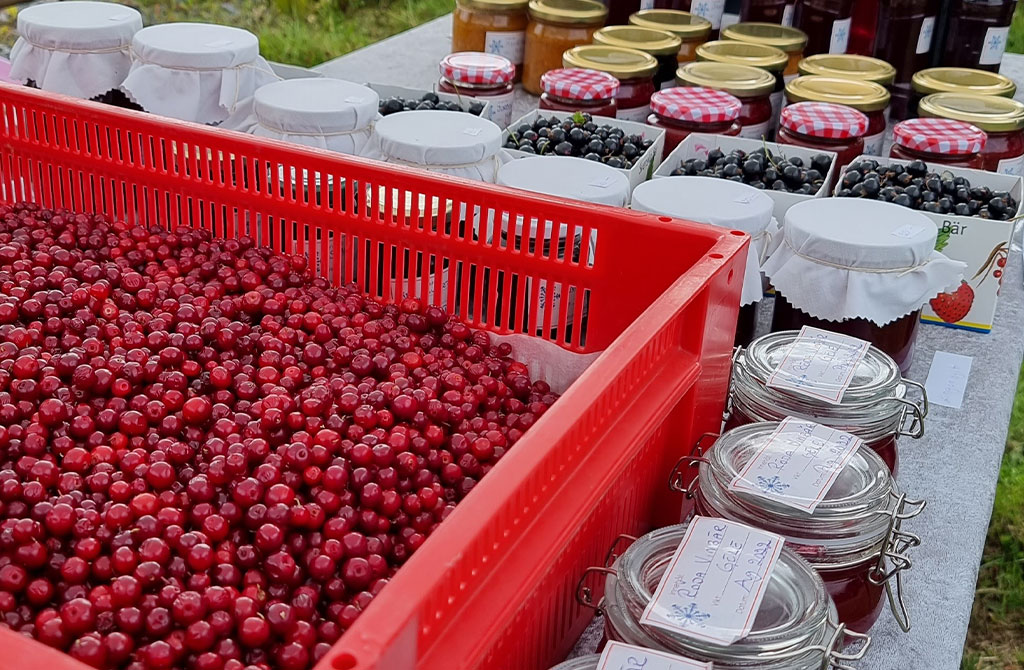
Nov 3, 2022
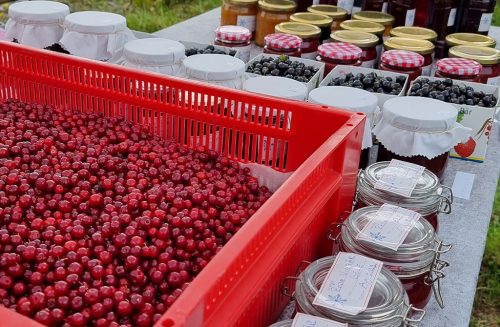
Today, the forest berry value chain is long and international. Local berry picking and processing have almost disappeared and have instead been replaced by foreign berry pickers in collaboration with large wholesalers. There is a national market for forest berries, but to get this value chain to develop further we need to tackle a series of challenges.
To show that the berry industry can change, FAIRCHAIN has developed a special app. The app was developed by RISE to be used for mapping berry fields and, via digital models made by SLU, we can help berry pickers predict which areas have a high yield of berries.
During the first part of 2022, FAIRCHAIN also devoted itself to finding partners who want to do tests with picking, cleaning and selling berries, in a new concept that we call “Bär-i-bygden” (Berries in the Village). The purpose of Bär-i-Bygden is to engage with the local population in Bjurholm, a small municipality in northern Sweden. The idea is to use Bjurholm as a kind of geographically limited demo site to test how we can create co-learning and engagement around berries. In September, we organized a berry festival in Bjurholm.
The aim was to get more people to see the possibilities with our wild berries, to create more cooperation in the area and, in this way, bring more creative product development around berries and berry processing. Over 400 people participated in the event.
Text and Image contributed by Alexander Walhberg, RISE

Feb 20, 2022
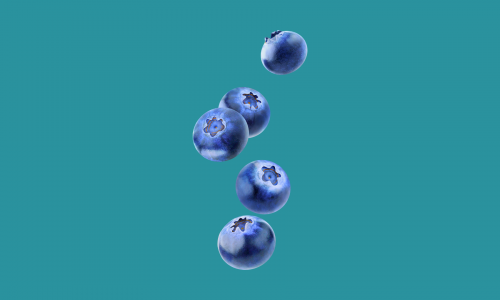
Also known as European blueberries, Swedish blåbär is the most abundant berry in Sweden. They’re not the same as their North American counterparts; European blueberries are slightly smaller, have less sugar and are a deep crimson color inside. European blueberry bushes are found all over Sweden and cover close to 20% of the land. They’re also consumed in large quantities as a European blueberry soup (blåbärssoppa) during Vasaloppet, the oldest cross-country ski race in the world.
Within the FAIRCHAIN Swedish case study, RISE Research Institutes of Sweden and researchers at SLU – Swedish University of Agricultural Sciences in Umeå developed a special App for mapping the forests and for creating guiding maps for the berry pickers.
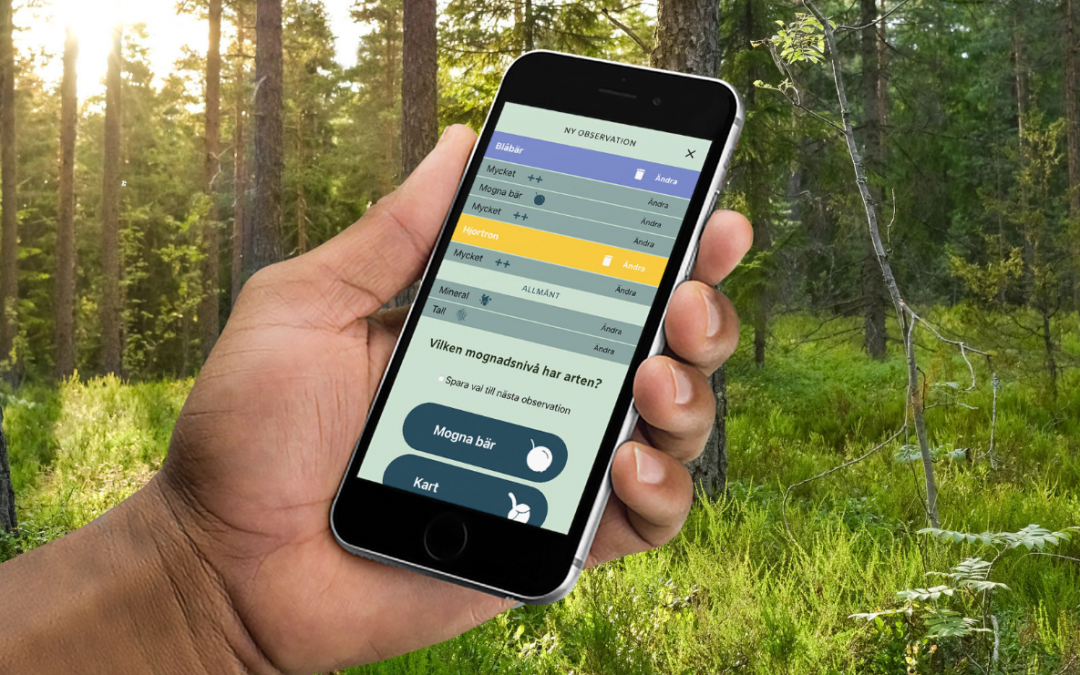
Dec 15, 2021
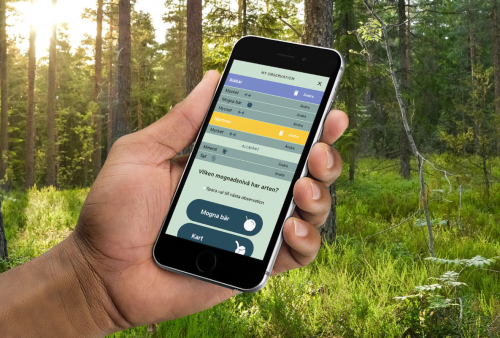
By: Roger Uddstål, RISE
The forest berry value chain is long and international. In Sweden, local berry picking has almost disappeared and been replaced by foreign berry pickers in collaboration with large wholesalers. There is a local market for wild forest berries, and more local value chains could be created if important obstacles can be overcome. One such obstacle for the berry-pickers is to find the berries in sufficient amounts.
FAIRCHAIN collaborates with RISE and researchers at SLU in Umeå to create knowledge that will make it easier for less experienced pickers to find the best places to pick. A special App has been developed that will be used for mapping the forests and for creating guiding maps for the pickers. The first test of the App was carried out during summer 2021 in an area south of Umeå. Now the information from the survey will be processed to create general models to predict where to find the berries.
During the autumn of 2021, the project will develop strategies for the coming years on how to demonstrate the potential of the App and how it can support an intermediate value chain. We are looking for partners who want to be involved in picking, cleaning, and selling berries in a new value chain. During the autumn, we will start investigating whether we can find a good location for a pilot study.


